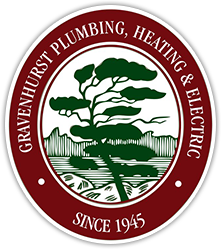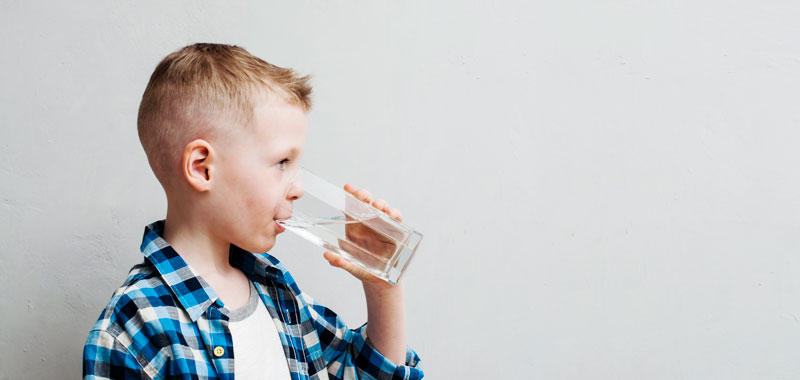Click here to Subscribe to Chips Tips Blog
A Water Filtration System Versus a Water Purification System: Which Do You Need?
A Water Filtration System Versus a Water Purification System: Which Do You Need?
Over the last year, the global pandemic has kept the spotlight squarely on indoor air quality and purity.
But there are many more factors besides air purity that can influence who gets sick and who stays healthy.
Water purity also has its own significant impact on an individual’s immune system, overall health and wellbeing.
Is your water safe to drink?
In this timely blog post, we take a closer look at two of the most popular water cleaning options: water filtration versus water purification.
What Is a Water Purification System?
The simplest definition of a water purification system is the systematic removal of waterborne contaminants.
What Toxins Are Removed Using a Water Purification System?
Different types of water purification systems can act upon different types of waterborne toxins.
For general purposes, algae, bacteria, fungi, viral matter, heavy metals, minerals, parasites and chemicals can all be removed through different water purification processes.
Well water may also require different levels of purification from aquifer water. While drinking water will go through a more rigorous purification process than water intended for industrial or agricultural use.
What Are The Different Types of Water Purification Systems
There are four main systems used to treat our water: boiling, filtering, distilling and chlorinating.
There are also hybrid water treatment systems that combine one or more of these options together in a single device or appliance.
1. Boiling Water
Boiling water is effective in neutralizing bacteria and germs. However, it will not remove or neutralize heavy metals or other toxins.
2. Filtering Water
Water filtration is one of the most economical and practical water purification systems for treating drinking water.
Filtered water can also be preferable because the filters don't touch the beneficial mineral salts that make water taste better.
3. Distilling Water
Distilling water uses heat to turn raw (untreated) water into pure (treated) water vapour.
Distillation is very effective at removing both organic toxins and heavy metals from water, but it takes a long time and isn't practical for treating large volumes of water.
4. Chlorinating Water
When you think of chlorine, you probably think of swimming pools. But chlorine is used to purify all kinds of water for all kinds of end uses, including drinking water.
Not everyone feels comfortable drinking water that has been treated with chlorine though. This is especially the case for people who have immune or thyroid issues!
Is a Water Filtration System Better Than a Water Purification System?
Over the last year and a half, major global health organizations have stayed very busy debating the various merits of air purification versus air filtration.
But treating our air and water with filtration versus purification isn't really a matter of either/or. Often it is the combination of both that actually works best!
1. Water Filtration System
A water filtration system uses different media to filter out different types of contaminants such as micro-particles and organic solids.
Different types of water filters have different degrees of effectiveness. Because of this, it is important to understand how each type works before you choose your water filtration system.
2. Water Purification System
A water purification system uses different processes to rid the water of toxins and impurities. As with water filtration, there are several types of purifiers used to treat water.
Among the most popular water purifiers are ultraviolet light, ozone, chlorine and iodine. Each uses a different process to purify the water source.
For example, ultraviolet water purification uses a synthetic version of UV-C, the sun's most powerful ultraviolet light band, to neutralize water borne toxins. UV-C leaves no by-products behind in the water.
In many cases, you will get the best results when your ultraviolet water purifier is paired with an upstream sediment filter.
Ozone, chlorine and iodine are additive purifiers that are added to the water to neutralize toxins. Of these three, ozone is generally acknowledged to be the safest. Ozone's final by-produce is O2, better known as oxygen.
Which is better? A Water Filtration System or a Water Purification System?
Now that you have a basic understanding of the difference between water filtration and water purification, the only question left is which one is the better choice for your water uses and needs.
As with air filtration and air purification, rather than treating these as standalone whole and complete systems, it can be beneficial to examine their effectiveness when used together.
There are a number of water treatment systems available today that combine water filtration with other treatment systems, including purification.
Should You Choose Water Filtration or Water Purification?
Here at Gravenhurst Plumbing, Heating and Cooling, we often recommend starting with a water quality assessment. This is the best way to find out what is in your water, which can then drive your choice of water treatment system.
Some of the tests we may need to do to pinpoint the best treatment include water turbidity, carbon levels, magnesium levels, iron levels, bacteria levels and water hardness, among other factors.
Once we have learned more about the potential for toxicity in your water supply, our service technicians can generate a list of their water treatment recommendations for your consideration.
It is also important to evaluate the source and volume of water to be treated. Well water will need a different treatment protocol than municipal water. And a small seasonal cottage will have different water treatment demands than a larger primary residence.
This evaluation will help determine whether a point of entry or point of use water treatment system makes the most sense for your needs.
Contact Gravenhurst Plumbing, Heating and Electric To Install Your Water Purification Water Filtration System Today!
Sometimes it can seem like no water supply is truly safe from the potential for contamination. But today's water purification technology can provide you with peace of mind when it comes to water safety and purity at home and at work.
Our Gravenhurst Water Purification Systems:
- Aclarus Water Systems
- UV Ultraviolet Water Purification System
- NOVO Water Conditioning
- POU Water Systems
Contact us online or give us a call at 877-885-3403 for help making sure your family's water supply is safe to drink.
Click Here To Find Out How To Boost Your Home Water Filtration and Purification During The Pandemic
P.S. Be sure to sign up to receive free Chip’s Tips by email each month!


